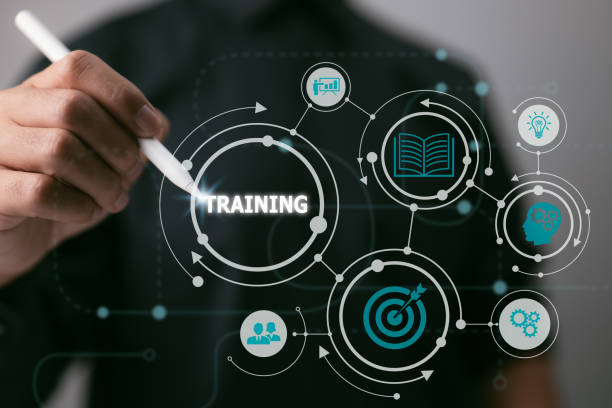Introduction:
Education is a constantly evolving field, and with the advent of technology, e-learning has become a major force in transforming the traditional classroom. E-learning refers to the use of digital technology to deliver educational content and facilitate learning. This article will explore how e-learning is changing the face of education and shaping the future of the classroom.
The Advantages of E-Learning
Convenient and Flexible
One of the biggest advantages of e-learning is its convenience and flexibility. Students can access course materials and complete assignments at any time and from any location, as long as they have an internet connection. This allows students to balance their education with other responsibilities, such as work or family obligations.
Cost-Effective
E-learning can also be more cost effective than traditional classroom-based learning. Tuition and textbook costs are often lower for online courses, and students can save money on transportation and other expenses associated with commuting to a physical classroom.
Personalized Learning
E-learning also allows for personalized learning experiences, where students can progress at their own pace and receive immediate feedback on their progress. This can help students who struggle with certain concepts to get the extra help they need to understand the material.
Access to a Wide Range of Resources
E-learning provides access to a wealth of resources, including multimedia materials such as videos, interactive simulations, and virtual environments. This can enhance the learning experience and provide students with a more engaging and immersive educational experience.
The Challenges of E-Learning
Isolation and Lack of Social Interaction
One of the biggest challenges of e-learning is the lack of social interaction and face-to-face interaction with instructors and peers. This can lead to feelings of isolation and disconnection from the learning community.
Technical Difficulties
E-learning can also be subject to technical difficulties, such as internet connectivity issues or compatibility problems with computer systems. This can disrupt the learning experience and hinder student progress.
Quality Control
Ensuring the quality of e-learning materials can be challenging, as the lack of in-person interaction can make it difficult to monitor the effectiveness of the education being provided. This can result in subpar educational experiences for students.
Limited Access to Resources
While e-learning provides access to a wide range of resources, not all students have equal access to these resources. For students who lack access to technology or have limited internet access, e-learning can be a hindrance rather than a benefit.
The Impact of E-Learning on the Education Sector
Increased Enrollment
The convenience and flexibility of e-learning have led to increased enrollment in online courses and programs, particularly among adult learners and working professionals who are unable to attend traditional in-person classes.
Changes in Instructional Delivery
E-learning has also led to changes in the way instructors deliver their content. With online courses, instructors are able to utilize multimedia resources, virtual environments, and interactive simulations to enhance the learning experience.
Expansion of Online Degree Programs
The rise of e-learning has also led to the expansion of online degree programs, allowing students to earn degrees entirely online. This has made higher education more accessible and affordable for many students.
The Future of the Classroom
Blended Learning
In the future, we can expect to see a greater emphasis on blended learning, where traditional classroom-based learning and e-learning are combined. This will provide students with the best of both worlds, offering the social interaction and hands-on experiences of traditional classroom learning, combined with the convenience and flexibility of e-learning.
Increased Use of Technology
The future classroom is also likely to see an increased use of technology, such as virtual and augmented reality, to create more engaging and interactive learning experiences. This will allow students to explore and interact with content in new and innovative ways.
Emphasis on Personalized Learning
The trend towards personalized learning is also set to continue in the future, with e-learning allowing students to progress at their own pace and receive immediate feedback on their progress. This will allow students to better understand the material and achieve their learning goals more effectively.
The Role of Educators in the Future Classroom
Adapting to Change
Educators will play a critical role in the future of education, as they will need to adapt to the changes brought about by e-learning and technology. This will require a willingness to embrace new teaching methods and technologies and to continuously adapt to meet the changing needs of students.
Facilitating Engagement and Collaboration
In addition to adapting to change, educators will also play a key role in facilitating engagement and collaboration among students. This will be especially important in blended learning environments, where students may have limited face-to-face interaction with their peers and instructors.
Conclusion
E-learning is transforming the classroom and shaping the future of education. While there are challenges to overcome, such as the lack of social interaction and technical difficulties, the advantages of e-learning are clear. With the continued advancement of technology, we can expect to see a continued evolution of the classroom and the way education is delivered in the future. Educators will play a critical role in this transformation, and it will be important for them to continuously adapt and evolve to meet the changing needs of students. The future of education is an exciting one, and e-learning is sure to play a significant role in shaping it.

